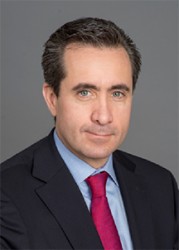By Jorge Familiar
For Latin America, 2014 did not turn out as well as we envisioned. We expected that a Latin American nation would win the World Cup, bringing the trophy back to the Americas, and, more seriously, that the region’s economic growth would continue on a steady, albeit slower, pace. According to our latest forecasts, the region will grow barely 1 per cent this year. Considering population growth, this means the average per capita income of Latin Americans did not progress in the past 12 months.
Growth won’t come easy. A commodity-fuelled expansion such as the one experienced by South America in the past decade is unlikely to return with reduced global demand for its production, particularly from China. And if this were not enough, the cost of financing development will probably rise in the years ahead as United States’ monetary policy changes course. The historic social gains achieved in the region in the past decade are at risk. Latin America will have to turn to its own devices in order to return to the path of growth with equity that made those gains possible.

This challenge puts significant pressure on public coffers. Thus a new premium will be placed on policies that can boost growth while keeping the focus on the poor. And when it comes to public investments that can do both at once, few come to mind as easily as education. On the one hand, a country with improved human capital can become more productive and grow at a faster pace. On the other, a population with better education can find better opportunities in life, and break the cycle of poverty that is too often perpetuated across generations. In a region where access to education up to secondary level is close to universal, the central challenge now is quality. And to raise the quality, what goes on inside the classroom, or more to the point, the skills of those in charge of teaching, are fundamental.
Every week, however, due to teacher absenteeism, low skill level and pay, as well as weak school leadership, public school students in Latin America and the Caribbean are deprived of the equivalent of one full day of class. That is one of the key findings of this year’s groundbreaking World Bank report ‘Great Teachers: How to Raise Student Learning in Latin America and the Caribbean’.
Another key finding that stands out is that individuals entering teaching careers in Latin America are academically weaker than the overall pool of students in higher education. In Singapore and Finland, teachers come from the top third of students. And this brings me to making teachers superstars.
Latin America is known for its world-class superstars, be they writers, soccer stars or artists. Shakira for instance is admired for her music and talent, but also for her years of dedication to improving the lives of poor children in Latin America. There is no question that the Colombian singer and songwriter deserves all the attention and praise she gets, but the region could benefit from having teachers who are admired half as much as music stars.
That’s easier said than done, many will say. But it is not impossible. It requires, above all, a serious dose of political will.
In the 1970s, for instance, Finland made raising the bar for teacher hiring a cornerstone of an education reform strategy. Finland used to have an education labor market very similar to Latin America with many teacher training institutions of variable quality producing an excessive number of teachers. Over several decades the country managed to change it to one where a much smaller number of high quality institutions produce just enough talented teachers, all of whom find teaching positions and enjoy high social prestige (as well as competitive salaries).
There is a growing consensus that the long-term growth path for Latin American economies has to be paved with productivity. This largely means investing in more skill-intensive industries that more competitively insert the region in global value chains to produce more growth by learning about new technologies and management practices. This transformation will require a skilled labor force, and education quality has to improve first. To avoid the risk of widening income gaps in the process of becoming more productive, quality education cannot be limited to the lucky few.
Jorge Familiar is the World Bank’s Vice President for Latin America and the Caribbean
@Familiar_BM




